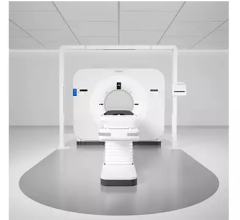May 23, 2008 – A new study is in search of establishing whether high-doses of the chemotherapy drug temozolomide after radiotherapy can provide better outcomes for patients with newly diagnosed malignant glioma, and if this is a possible consideration for Sen. Edward Kennedy (D-Mass.) and other patients with this type of brain tumor.
The ongoing study by Radiation Therapy Oncology Group (RTOG), ,a clinical research component of the American College of Radiology (ACR), is enrolling approximately 1153 malignant glioma patients at 217 sites throughout the U.S., including Massachusetts General Hospital in Boston, Canada, Europe and Israel.
The goal of the study is find out if giving temozolomide for a longer time each month (compared to current practice) will improve the outcome for malignant glioma patients and what effects, if any, the longer drug schedule might have patients.
Since correlative laboratory studies have shown a link between tumor MGMT gene expression and treatment response, another goal of this trial is to examine the relationship between methylated MGMT status and temozolomide dose on survival. To find out which patients have the MGMT gene, a sample of tumor tissue from each patient is examined by a central laboratory prior to the randomized treatment assignment.
Enrolled patients take a daily dose of temozolomide orally during radiotherapy. At the completion of radiotherapy, patients are randomly assigned to receive either the standard treatment schedule consisting of temozolomide once a day for five days every four weeks for up to one year, or the longer schedule, consisting of temozolomide once a day for 21 days every four weeks for up to one year. Patients receive an MRI or CT scan at regular intervals to assess tumor size and treatment effect. The researchers will keep track of the patient’s medical condition for the rest of his or her life.
The RTOG-led study, RTOG 0525/EORTC 26052_22053: Phase III Trial Comparing Conventional Adjuvant Temozolomide with Dose-Intensive Temozolomide in Patients with Newly Diagnosed Glioblastoma, builds upon the work of Mark R. Gilbert, M.D., the RTOG study chair from the University of Texas M.D. Anderson Cancer Center, and the work of Roger Stupp, M.D., University of Lausanne in Switzerland, with the EORTC and the National Cancer Institute of Canada.
For more information: www.rtog.org


 December 11, 2025
December 11, 2025 









